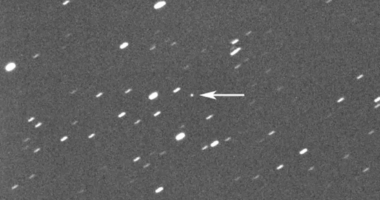Jingwei Li, an undergraduate student at Case Western Reserve University, is researching cockroaches to better understand Parkinson’s disease. Cockroaches have genes in the brain that are similar to humans’, making them ideal for studying the effects of Parkinson’s disease. Additionally, cockroaches have a longer lifespan than fruit flies, allowing scientists to study longitudinal changes more easily. Li’s work involves documenting a transcriptome to provide insight into how Parkinson’s disease affects the cephalic ganglia. He also measured the locomotion of cockroaches with genetically induced Parkinson’s disease, observing their movements to be jerky and unpredictable. Scientists hope to utilize cockroaches’ longer lifespans and new genetic tools to test FDA-approved drugs and the effects of diet on Parkinson’s disease symptoms. After graduation, Li hopes to continue researching and better understand the intricacies of Parkinson’s disease.
Jingwei Li, a student at Case Western Reserve University, is conducting research on cockroaches to better understand Parkinson’s disease. Li chose to work with American cockroaches, or Periplaneta americana, because of their similarity to humans in certain genes in the brain, including those for Parkin and D2-like dopamine receptors. Cockroaches also have a longer lifespan than fruit flies, which are commonly used in scientific studies, allowing scientists to study longitudinal changes more easily.
Li’s research involves studying the cephalic ganglia, a bunch of nerves in the brain, by documenting a transcriptome, which will provide insight into the effects of Parkinson’s disease on a cockroach’s brain. Li also measured the locomotion of cockroaches with genetically induced Parkinson’s disease, observing their movements to be jerky and unpredictable with less grip strength. Additionally, the cockroaches’ movements became smaller and fewer over time, a condition called hypokinesia, resulting from diminished dopamine levels.
Cockroaches have been used in scientific research for over a century, but neuroscience tools have rarely been applied to them until now. Scientists hope to utilize cockroaches’ longer lifespans and new genetic tools to test FDA-approved drugs and the effects of diet on Parkinson’s disease symptoms.
Li’s supervisor, Ryan Arvidson, commended Li’s work, stating that despite beginning with limited data, Li succeeded almost immediately. Li’s tenacity and willingness to work with a unique model organism were critical to the project’s success.
Jingwei Li, a student at Case Western Reserve University, has been studying cockroaches for Parkinson’s disease. After a long day of studying cockroach locomotion, Li likes to go to the gym to impair his own. Li said he felt more involved in the research process in Arvidson’s lab, and he hopes to continue researching even after graduation. Li’s work has transformed the image of cockroaches from pests to pets, as he has spent countless hours studying their movements and behaviors in hopes of better understanding Parkinson’s disease.
Don’t miss interesting posts on Famousbio










